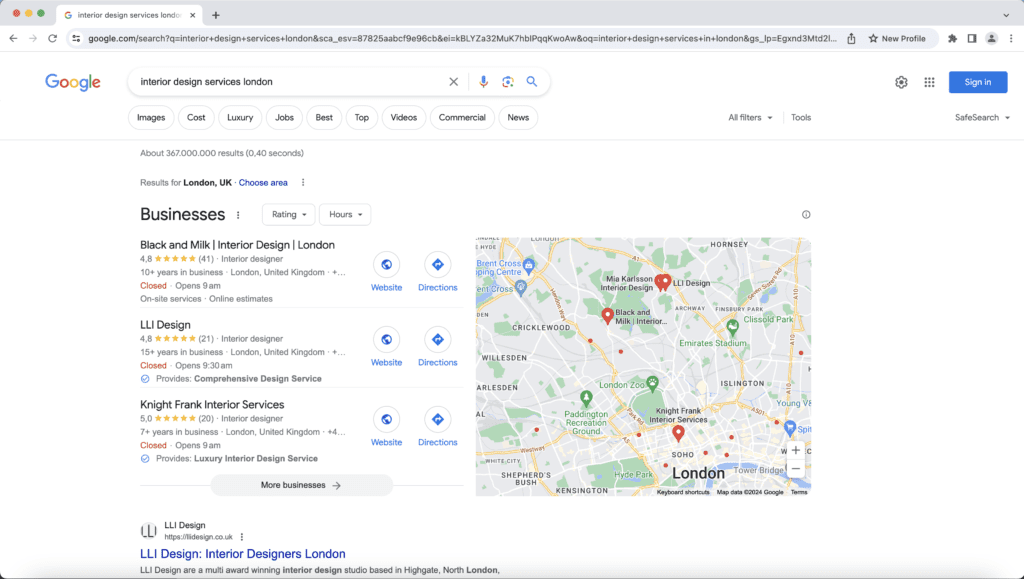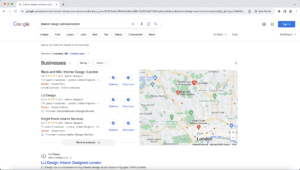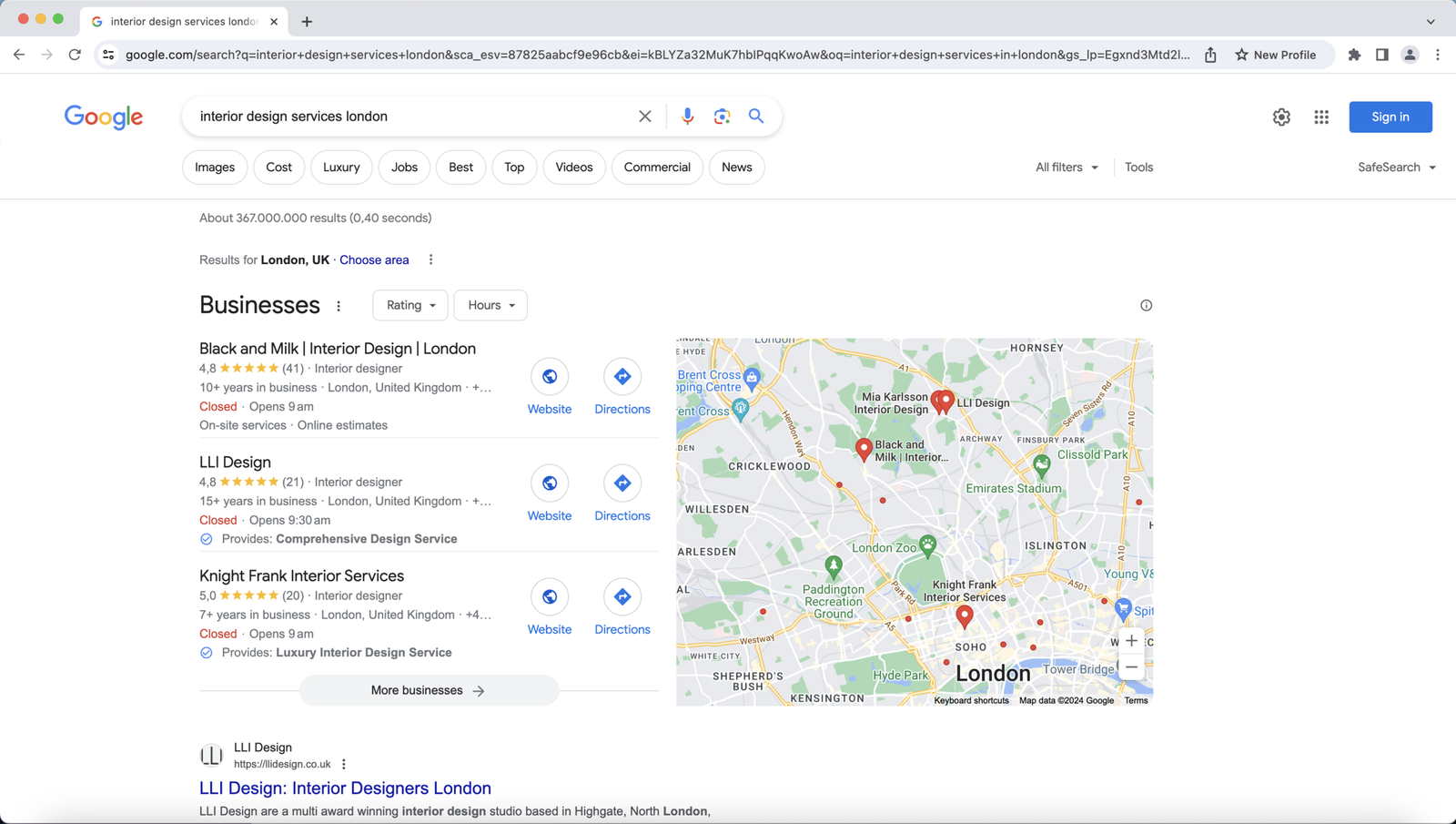What is a Google Search Results Page (SERP)
When you type a query into Google’s search bar, you’re presented with many results on what is known as the Search Engine Results Page (SERP). Understanding how this page works can be pivotal for businesses and individuals aiming to increase online visibility.
Components of Google SERP
Organic Results
Organic results are the listings that appear based on their relevance to the search query without payment. They are ranked according to Google’s algorithms.
Paid Results
Paid results, also known as Google Ads, appear at the top and bottom of the SERP. Advertisers bid on keywords to display their ads when users search for specific terms.
Featured Snippets
Featured snippets provide concise answers to users’ queries directly on the SERP. They aim to give users quick access to information without clicking through to a website.
Knowledge Graph
The Knowledge Graph is a database used by Google to enhance its search engine’s understanding of factual information. It often appears as a box with summarized information related to the search query.
Understanding Organic Results
Title Tags and Meta Descriptions
Title tags are clickable headlines that appear in search results. They should accurately describe the content of the webpage. Meta descriptions provide a summary of the page’s content.
URLs
URLs indicate the web address of a particular page. They should be descriptive and contain relevant keywords.
Rich Snippets
Rich snippets enhance search results by providing additional information such as ratings, reviews, and event details. They can increase click-through rates by making listings more visually appealing.
Deciphering Paid Results
Google Ads
Google Ads allow advertisers to display their ads on the SERP and across Google’s network of websites. Advertisers bid on keywords, displaying their ads to users searching for those terms.
Ad Extensions
Ad extensions are additional information that can be added to Google Ads to provide more context and encourage user interaction. Examples include call buttons, location information, and site link extensions.
Exploring Featured Snippets
Definition and Purpose
Featured snippets aim to answer users’ queries directly on the SERP without requiring them to click through to a website. They typically appear in a box at the top of the search results.
Types of Featured Snippets
Featured snippets can take various forms, including paragraphs, lists, tables, and videos. Understanding the different types can help creators optimize their content for snippet inclusion.
Unveiling the Knowledge Graph
Functionality
The Knowledge Graph enhances Google’s search engine by providing immediate answers to factual queries. It pulls information from various sources to generate comprehensive and accurate results.
Data Sources
Google gathers information for the Knowledge Graph from trusted sources such as Wikipedia, Wikidata, and licensed databases. It aims to provide users with reliable information from authoritative sources.
Factors Influencing SERP Ranking
Relevance
Relevance is crucial for ranking well in search results. Websites must ensure their content aligns with users’ search intent and contains relevant keywords.
Authority
Google considers the authority of a website when determining its ranking. Factors such as backlinks, domain age, and content quality contribute to a site’s authority.
User Experience
User experience plays a significant role in SERP ranking. Page speed, mobile-friendliness, and overall website usability influence how Google perceives a site’s quality.
The Impact of SERP Features on SEO Strategies
Optimizing for Featured Snippets
To optimize for featured snippets, content creators should provide concise answers to common questions, use structured data markup, and format content in a way that is easily scannable by search engines.
Strategies for Google Ads
Effective Google Ads strategies involve thorough keyword research, compelling ad copy, and strategic bidding to maximize return on investment.
Future Trends in Google SERP Evolution
Voice Search Integration
As voice search continues to grow in popularity, optimizing content for voice queries will become increasingly important for businesses looking to maintain their visibility in search results.
Mobile-first Indexing
With most internet users now accessing the web via mobile devices, Google’s shift to mobile-first indexing means that websites must prioritize mobile responsiveness and usability to rank well in search results.
Conclusion
Understanding how the Google Search Results Page works is essential for anyone looking to improve their online visibility. By optimizing content for organic and paid results, leveraging featured snippets, and embracing future trends in search, businesses and individuals can enhance their presence in Google’s search results and connect with their target audience more effectively.
Questions You Might Ask.
- What is the difference between organic and paid results on Google SERP? Google’s algorithms determine organic results and appear based on relevance to the search query, while paid results are advertisements that appear at the top and bottom of the SERP.
- How can I optimize my website for featured snippets? To optimize for featured snippets, focus on providing clear and concise answers to common questions, using structured data markup, and formatting content in a way that is easily understood by search engines.
- Why is user experience important for SERP ranking? User experience signals, such as page speed, mobile-friendliness, and overall website usability, indicate to Google the quality of a website and its relevance to users’ search queries, impacting its ranking in search results.
- What are some future trends in Google SERP evolution? Future trends in Google SERP evolution include increased voice search integration, prioritization of mobile-first indexing, and advancements in artificial intelligence impacting search algorithms.
- How can I improve my website’s authority for better SERP ranking? Improving your website’s authority involves building quality backlinks from reputable websites, creating high-quality content that demonstrates expertise, and ensuring a positive user experience to increase engagement and trustworthiness.










